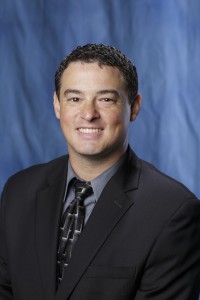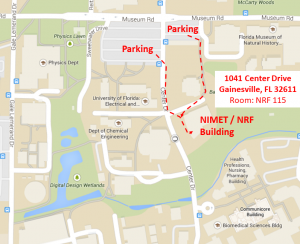Combining neuroimaging, computational modeling and tDCS to remediate cognitive aging: a pathway to precision medicineAdam J. Woods, PhDAssociate Professor, Preeminence Term Professor Tuesday, October 8th, 2019
|
 |
Abstract:

Cognitive Aging: Cognitive function declines as we age. As our thinking and memory skills decline, the rate of functional dependence, mortality, and acute illness requiring hospitalization increases. A variety of methods have been proposed to counteract cognitive aging (e.g., cognitive training). Unfortunately, these techniques have limited degrees of success and transfer to everyday life. My work demonstrates that combining treatments like cognitive training with non-invasive brain stimulation (tDCS, TMS, tACS) facilitates neuroplastic response of brain tissue, improves cognitive abilities (specifically working memory, attention, and speed of processing), and leads to long-term improvement. In combination with modern multimodal neuroimaging and electrophysiology recording, this work not only identifies mechanisms underlying improvement, but also provides information important for further optimizing treatment effectiveness. Dr. Woods is PI of the largest NIH/NIA-funded Phase III tDCS trial, the ACT study. The ACT study investigates benefits of tDCS paired with cognitive training for cognitive and brain function and slowing onset of dementia in older adults.
Methodological Expertise: Non-invasive brain stimulation (transcranial direct current stimulation (tDCS), transcranial magnetic stimulation (TMS)); brain imaging (structural and functional magnetic resonance imaging); magnetic resonance spectroscopy (1H and 31P), human electrophysiology (event-related potentials).
Speaker Bio:
Dr. Adam J. Woods is an Associate Professor of Clinical and Health Psychology and Assistant Director of the Center for Cognitive Aging and Memory (CAM) in the McKnight Brain Institute at the University of Florida. Dr. Woods is an interventional cognitive neuroscientist that focuses on discovery and application of novel non-invasive interventions for remediating age-related cognitive decline and preventing dementia. His work leverages non-invasive brain stimulation, multimodal neuroimaging and other clinical/cognitive neuroscience methods to not only evaluate the efficacy of promising brain-based interventions, but also understand their neural mechanisms. At present, Dr. Woods’ lab leads the first and largest ongoing Phase III tDCS clinical trial (the ACT study), as well as the largest ongoing near-infrared photobiomodulation Phase II trial (the Revitalize study). His ongoing work seeks to leverage multimodal neuroimaging, computational modeling, and machine learning to develop personalized dosing applications for enhanced efficacy of these methods in clinical applications.